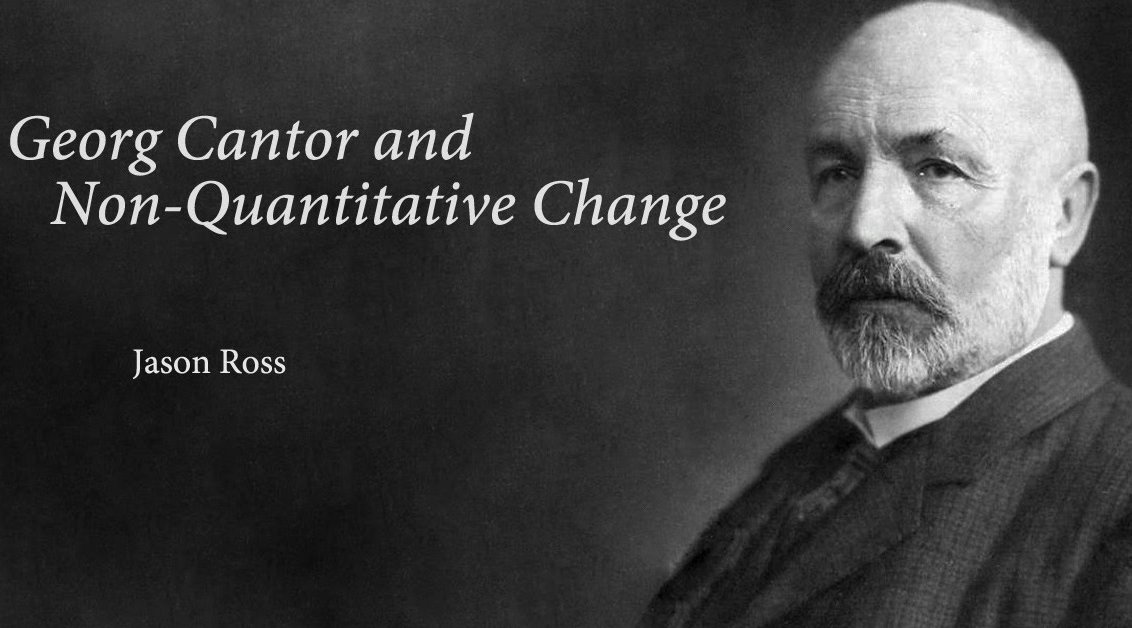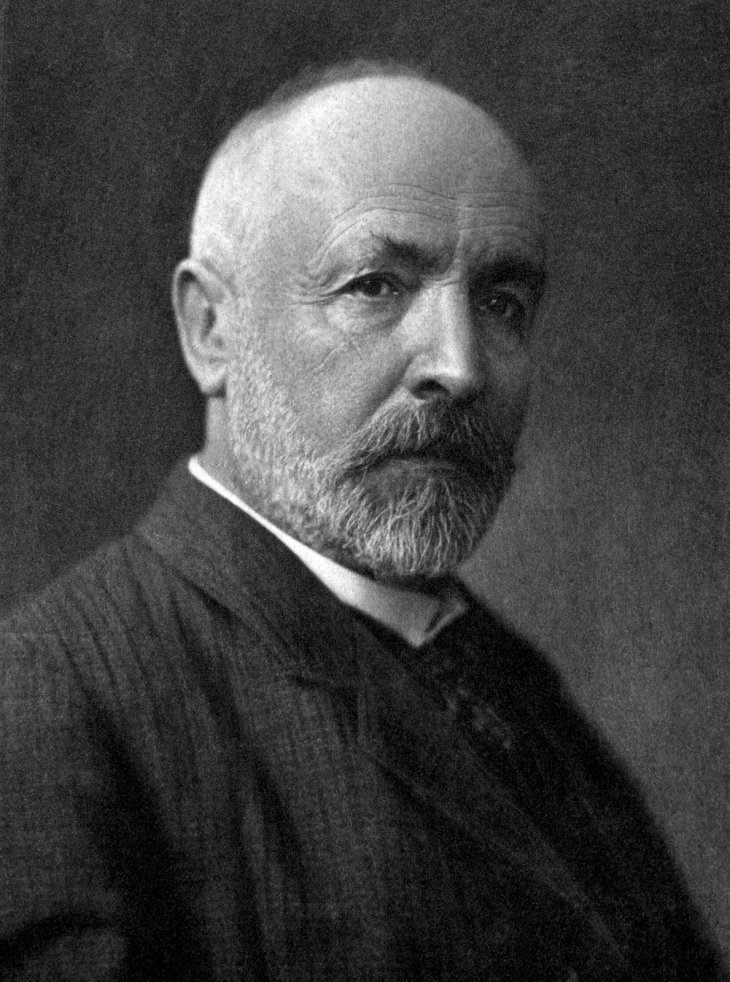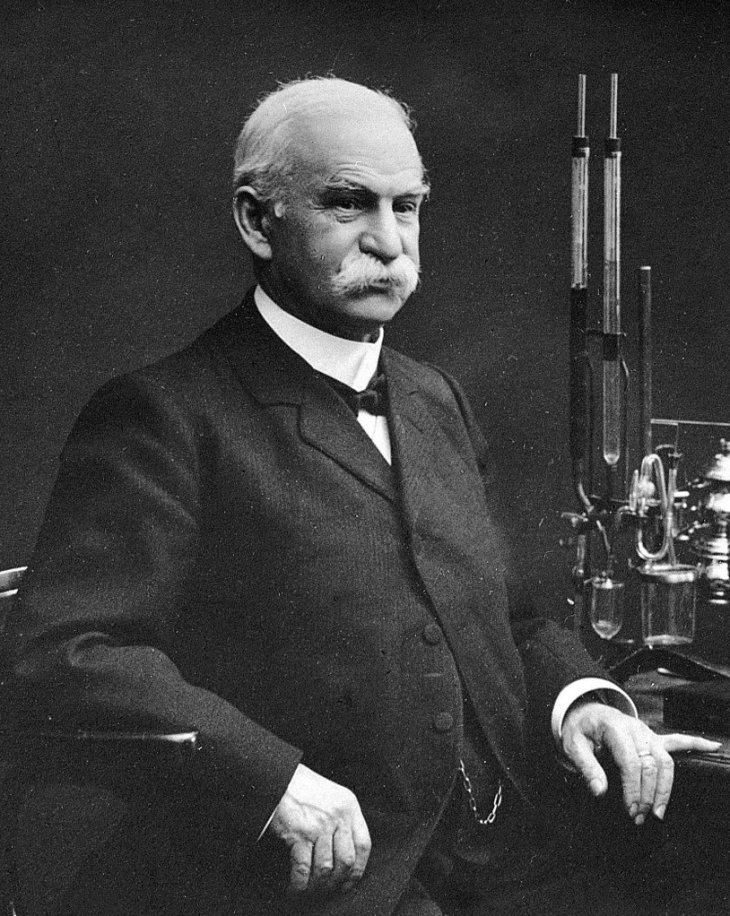Being Called A Corrupter By His Teacher, This Mathematician Only Received Recognition Before Dying In Poverty
Aadhya Khatri - Apr 05, 2019

Cantor suffered several episodes of depression because of the criticism on his work of infinity
- Indian IT Engineers Visit “Visa Temple” To Pray For A US Visa
- Apple Users In India Now Can Find Patrol Pumps And Restaurants With Apple Maps' Nearby Feature!
- All You Need To Know About Say Namaste App - Zoom's Rival In India
Infinity is one of the most significant parts of the foundation of modern mathematics. It has been circulated for a long time before Georg Cantor’s study of infinite numbers, and infinite sets were known. Unlike our current approach, ancient Greek and then Indian defined infinity as a philosophical concept rather than a formalism.
However, the man who was associated the most with this concept is Cantor. You may think that with such a significant contribution; he must have been deeply respected and praised by his peers. While he should have had that appreciation, Cantor did not precisely live well at his time. When he first introduced his work on infinity, Cantor's fellow mathematicians were enraged, which led to numerous tragedies happening to Cantor.

Georg Cantor
Georg Cantor was born in 1845 in St. Petersburg, but he and his family migrated to Germany in search of more favorable weather. He was a gifted child and had the opportunity to be under the guidance of some noted mathematicians, like Weierstrass and Kronecker. When he graduated, he became a professor at the University of Halle when he was at a very young age. Apart from infinity, he had other works on number theory, but he is mostly known for the former.
Before he came up with his famous and controversial work, infinity was not accepted as a thing. Many mathematicians at that time opposed the existence of it. A prime example was Gauss. He said that infinity was merely an expression used when people wanted to refer to limits, and there was no such thing as completed infinity in mathematics.
Cantor’s work went against that widespread belief, so he and his infinity research were under severe criticism, even from his former teacher, Leopold Kronecker. He was math department’s head at the University of Berlin, where Cantor wanted to get a job there. However, because of Kronecker’s opinion about his work, he never had the chance he deserved.

Hugo Kronecker
Kronecker belonged to the finitism, which opposed the existence of infinity. He expressed his thought on it by claiming that counting numbers were the work of God; everything different than that was the creation of man.
In Kronecker’s opinion, natural numbers existed, they are the base of mathematics, and any other math objects must be able to be derived from that foundation. So Kronecker disagreed with Cantor when he proved that the set of real numbers is larger than that of natural numbers.
The dispute between them went so far that Kronecker called Cantor a “renegade,” a “scientific charlatan,” or a “corrupter of youth.” About the infinity work, he claimed that the theory had no mathematics property and he did not know what governed it, theology or philosophy.
Kronecker’s acts among other criticism from other mathematicians took a heavy toll on Cantor. He was in severe depression and no longer interested in math. Cantor found joy in other subjects; one of them was the question of whether there were other contributors to Shakespeare’s works. He did publish a few pamphlets on that though.
He still loved math and later came back to it. However, none of his works at that time was as transformative as that of infinity. World War I happened and pushed him into poverty. He passed away in 1918, five years after his retirement.
Although he did not live long enough to the day someone gave his work on infinity justice or better, realized how groundbreaking it is. Cantor received the Sylvester medal, awarded by the Royal Society (London).
Cantor’s infinity has laid the foundation for several later developments in mathematics. David Hilbert, one of the most influential mathematicians of the 19th and early 20th centuries, even created an expression called “Cantor Paradise” when he was talking about set theory and cardinal numbers.
Featured Stories

Features - Jan 29, 2026
Permanently Deleting Your Instagram Account: A Complete Step-by-Step Tutorial

Features - Jul 01, 2025
What Are The Fastest Passenger Vehicles Ever Created?

Features - Jun 25, 2025
Japan Hydrogen Breakthrough: Scientists Crack the Clean Energy Code with...

ICT News - Jun 25, 2025
AI Intimidation Tactics: CEOs Turn Flawed Technology Into Employee Fear Machine

Review - Jun 25, 2025
Windows 11 Problems: Is Microsoft's "Best" OS Actually Getting Worse?

Features - Jun 22, 2025
Telegram Founder Pavel Durov Plans to Split $14 Billion Fortune Among 106 Children

ICT News - Jun 22, 2025
Neuralink Telepathy Chip Enables Quadriplegic Rob Greiner to Control Games with...

Features - Jun 21, 2025
This Over $100 Bottle Has Nothing But Fresh Air Inside

Features - Jun 18, 2025
Best Mobile VPN Apps for Gaming 2025: Complete Guide

Features - Jun 18, 2025
A Math Formula Tells Us How Long Everything Will Live
Read more

ICT News- Mar 02, 2026
IDC Report Predicts Surging Smartphone Prices Due to Global RAM Shortage
This development underscores the broader ripple effects of the AI boom on everyday technology, highlighting the interconnected nature of global semiconductor supply chains.

ICT News- Feb 28, 2026
Anthropic Blacklisted by US Department of War: Trump Orders Federal Ban Over AI Safeguards Dispute
The story is developing. Federal agencies have been instructed to begin transition planning immediately.

ICT News- Mar 01, 2026
Samsung Links Galaxy S26 Price Hikes to AI Memory Supply Issues
This development highlights the broader challenges faced by the tech industry as it integrates artificial intelligence into everyday consumer electronics.
Comments
Sort by Newest | Popular